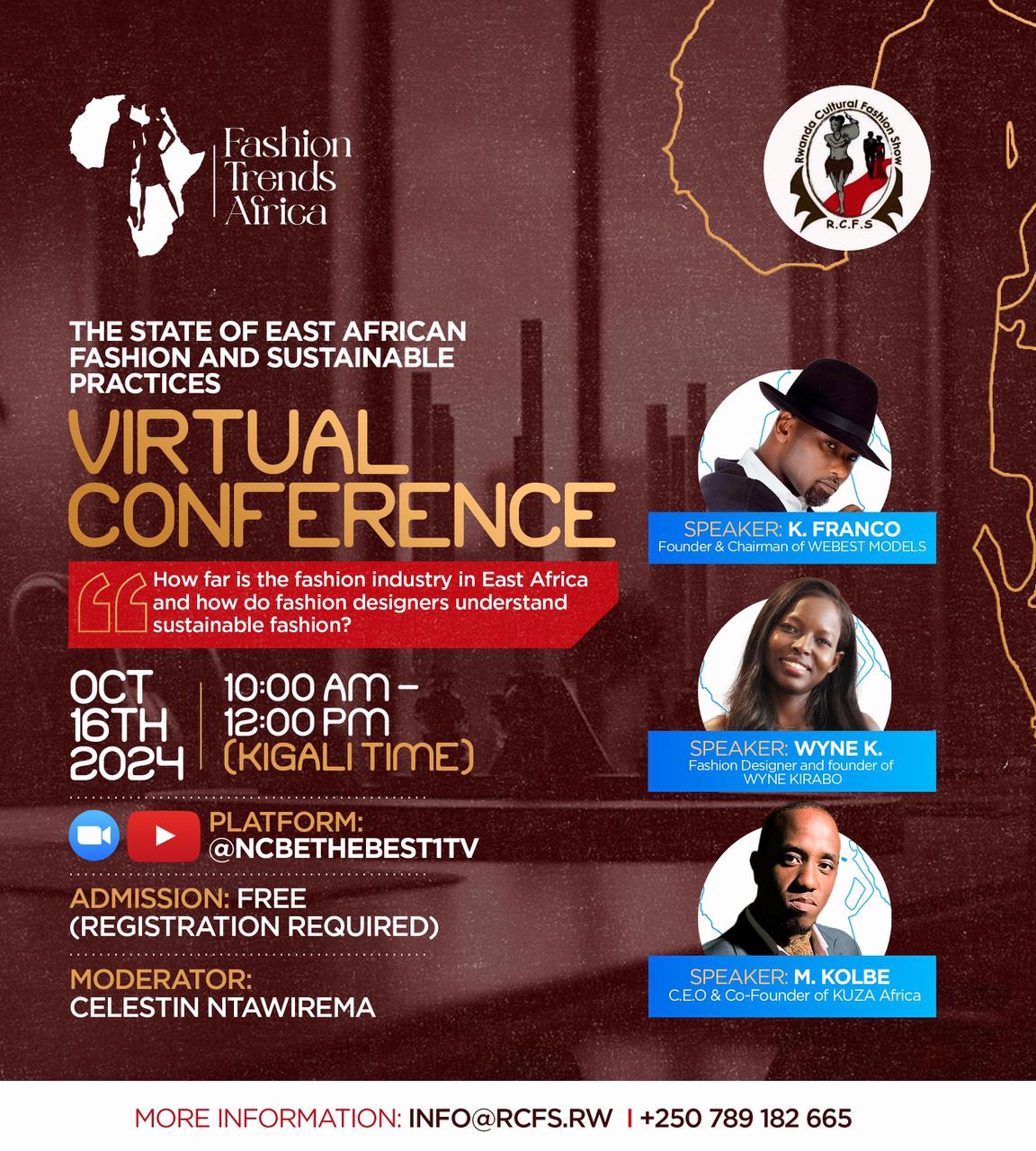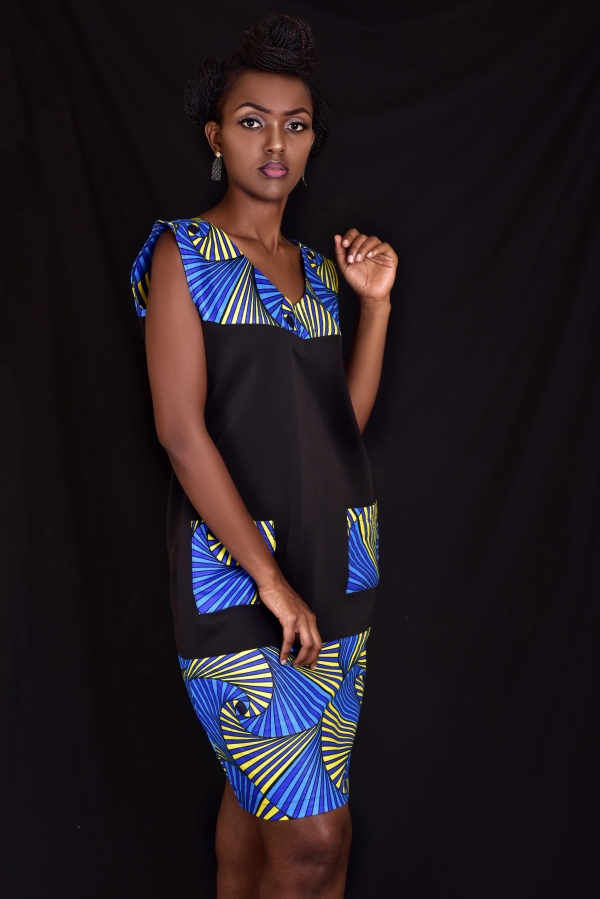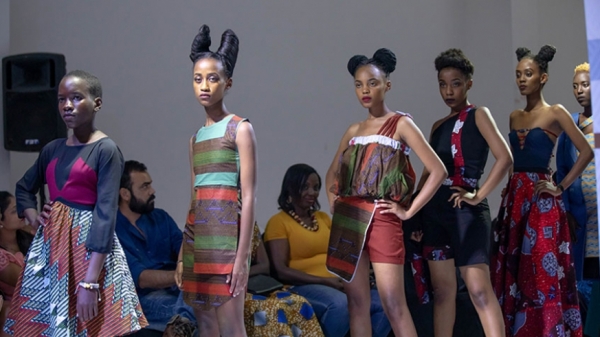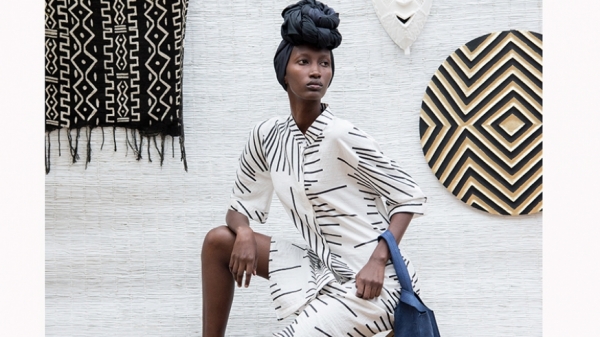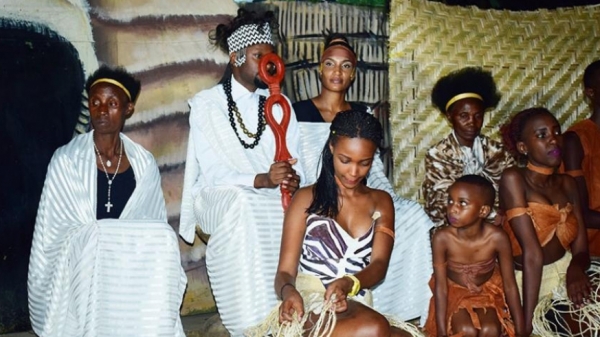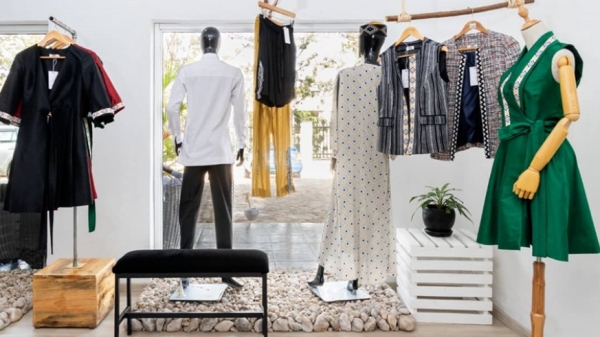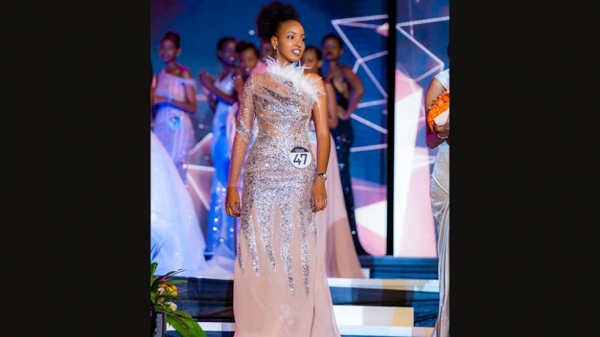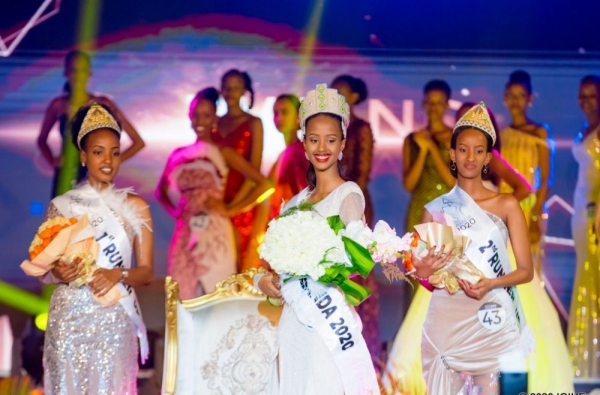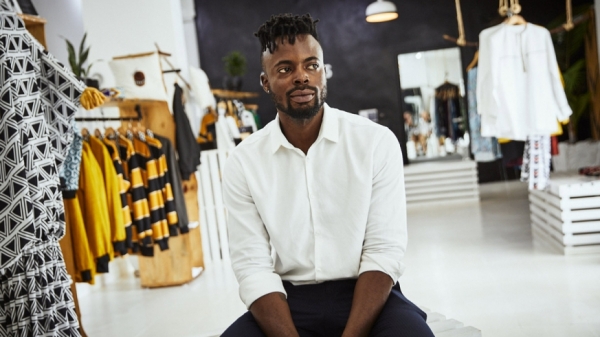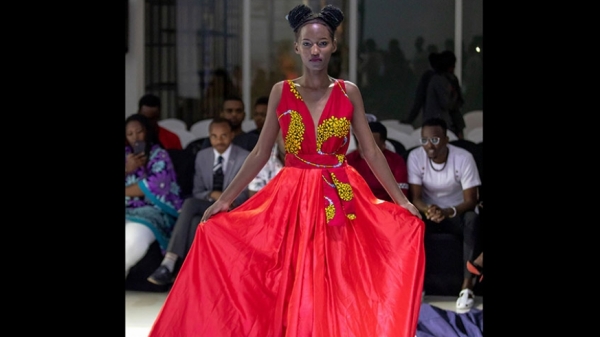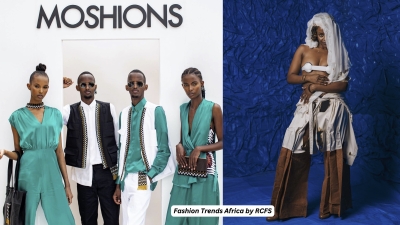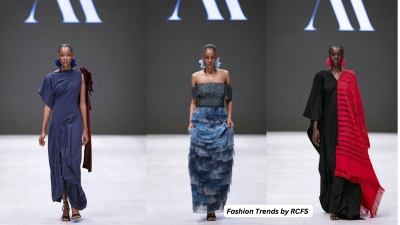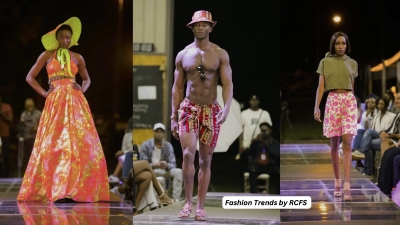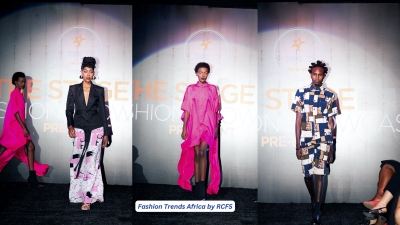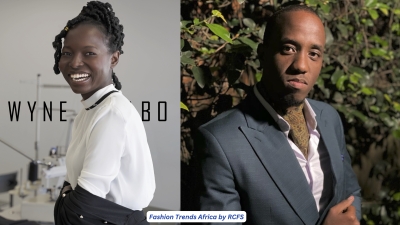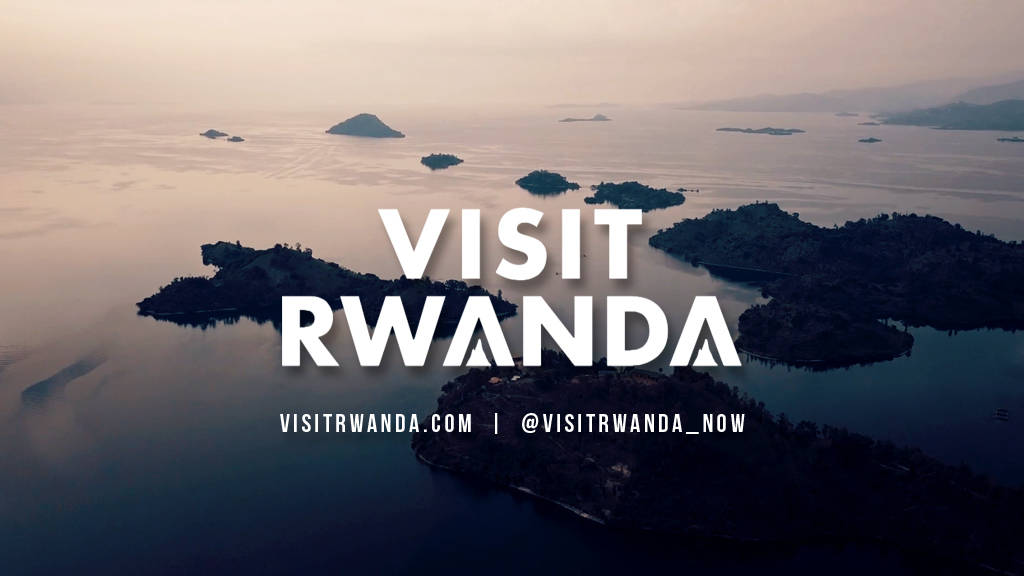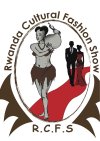
RCFS
How can Private and Public Institutions Support Africa’s Growing Fashion Industry?
This is the topic that will be discussed during the virtual conference entitled “The Future of Fashion Industry in Africa”. It will be in the form of a series of thought-provoking panel discussions about the textiles and fashion industry in Africa. It is scheduled on Friday, 18th December 2020, from at 10:30 am to11:30 am (GMT-KIGALI).
Rwanda Cultural Fashion Show Webinar 2020 Register Here To Participate or Send your registration via e-mail: This email address is being protected from spambots. You need JavaScript enabled to view it.
It is organized by the Rwanda Cultural Fashion Show known as the RCFS. This is a Rwandan company which had been working in the fashion industry about 8 years ago. The RCFS was founded in 2012 to promote fashion designers and create public awareness of the talent and quality designs in Africa.
Since the start, may Africans men and women have been promoted through the RCFS events. It assists in marketing, promotion and branding especially for the upcoming fashion designers who are starting small businesses in fashion. According to the examples from the RCFS’s 8 years’ experience, many brands from all over the continent had been established and some are now selling even on the international fashion markets.
This is a magnificent step which shows that the Africa fashion industry had been achieving in a short time. For example, Africa has few fashion schools comparing to the countries where modern fashion is coming from like in the USA, India and Europe etc. But many Africans fashion designers had been invited to showcase in Western and Europe fashion weeks and this is a great full for the Africa fashion sector.
The journey of the fashion industry in Africa started about 20 years ago. It was the revolution of the textiles and fashion industry on the continent which the RCFS sees as an example for the Africans and friends of Africans to feel the pride from our various cultures in styling.
According to the African Development Bank, demand for African textiles and garments is increasing globally, and African patterns are gaining international recognition as fashionable and iconic pieces, with international fashion houses now integrating more and more African influences in their latest collections. As President Zewde stated: “Globally, Africa’s cultural colours and clothing are increasingly being embraced.

Another example, there are several continental initiatives which are supporting the African fashion industry to develop and sell their products. The Fashionomics Africa initiative of the African Development Bank, together with the African Union, the AfroChampions initiative, and other institutional partners and private operators, launched the Pan-African Fashion initiative on 9 February during the recent AU meetings in Addis Ababa.
Pan-African Fashion initiative is a platform for stakeholder engagement, dialogue, strategy and policies to advance the African fashion industry within the context of the African Continental Free Trade Area (AfCFTA), which aims to remove trade barriers between African nations and thus expand intra-Africa trade by about $35 billion per year. Intra-African imports and exports currently account for just 15% of all trade on the continent.
BY the RCFS TEAM
Models catwalking at a past fashion show. The webinar will discuss how to push the industry in Africa forward.
Rwanda Cultural Fashion Show (RCFS) will on December 18, hold a virtual conference during which players in the fashion industry will discuss the current state of the African fashion industry.
Dubbed “The Future of Fashion Industry in Africa”, the webinar will bring together different stakeholders of the fashion industry to share experiences and discuss how private and public institutions can support Africa’s growing fashion industry.
The webinar will include discussions which will be in the form of a series of a thought-provoking panel. Key speakers of the event will include renowned fashion designers, fashion promoters, experts in textiles and fabric dyeing, fashion school teachers and some government representatives.
Celestin Ntawirema, the brains behind RCFS and organiser of the webinar told The New Times that participants in this webinar will share experiences on how to establish a successful fashion concept business, discuss challenges facing the industry and propose some solutions.
“Though Covid-19 halted most activities in the industry, we thought of creating a platform that will bring players in the fashion industry to share experiences and best practices so we can learn from each other how best we can push our fashion industry to another level. We also want to see how designers can go global through African networks,” Ntawirema said.

Celestin Ntawirema, the CEO of Rwanda Cultural Fashion Show. / Courtesy.
The African fashion sector is already impressing in the global market, something that industry players hail as a motivation despite the challenges they have faced in the journey.
Ntawirema, who has been promoting fashion for over the past eight years said that, from his experience, many brands from all over the continent had established themselves among the best globally and are now selling big on the international fashion markets compared to Western fashion despite having few fashion schools that can drive the industry to greater heights.
He, however, lamented that investors are still reluctant to put their money in fashion-related projects because protection of fashion copyrights and fashion innovations is still low due to the gap in fashion literacy.
The webinar, he said, will be an opportunity for fashion players to show both the public and private sectors the potential that fashion has at its disposal so as to attract their investment and, on the other hand, call for support from the governments to create a conducive environment for fashion to flourish and become a sector which can contribute to the national economic development.
A model shows up before the audience during a past event. / File.
Some of the speakers expected for the webinar include Ruth Jackob, senior lecturer in fashion marketing Eastern London, Karen Uwera, the President of Rwanda Designers Association, John Bunyeshuri, the CEO and Founder of Kigali Fashion Week and Kenyan fashion guru Vinn Clizz, the Managing Director of Vinn Clizz among others.
Challenges
Though Rwanda’s fashion industry is being contextualized with the ‘Made in Rwanda’ policy but Ntawirema said that it’s a shame that One of the biggest challenges we have is that we have no fashion school that can prepare and raise future designers, models, or fashion promoters by profession.
“This is all down to the fact that Rwanda has no forum bringing together designers, models, promoters and other stakeholders to discuss to the future of this industry. We also need an umbrella or a fashion watchdog for all players in the fashion industry to ensure that the protection of our works is guaranteed,”
Rwanda may have local designers who are becoming successful but under hard conditions which the webinar is also looking forward to tackling.
The webinar outcomes are expected to respond to questions raised around African fashion industry from “who can design?”, “who can sell locally-made clothes”, and “who promotes fashion?” or even “who can basically support fashion sector?”
“We hope the webinar will find share responses to these questions together with the speakers. We also value new ideas from the public from which the future styling and fashion business in Africa can rely on,” he added.
This email address is being protected from spambots. You need JavaScript enabled to view it.
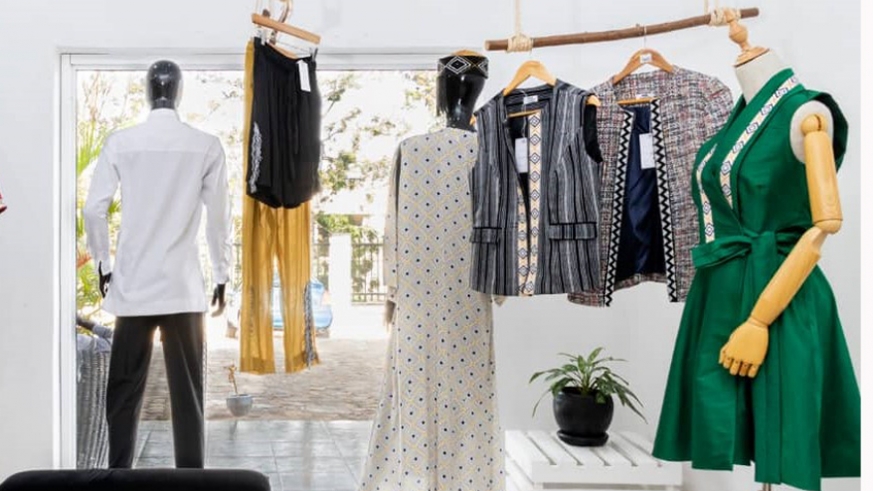
Moshions store in Kigali. / Courtesy.
Four Rwandan fashion brands; House of Tayo, Inzuki Designs, Moshions and Haute Baso on Sunday, August 2, saw their creations listed among top African fashion brands that feature on American singer Beyoncé Knowles’ website.
The website, beyonce.com, features over a hundred of African fashion houses as part of the singer’s initiative to help strengthen small businesses and to ensure economic empowerment for Black-owned businesses, especially in the creative industry.
The initiative is a partnership between the American pop singer, BeyGOOD and the National Association for the Advancement of Colored People (NAACP), an American civil rights organization that serves as an interracial endeavour to advance justice for African American.
Most of the designers that The New Times spoke to said that no application was made to feature on the platform, but their creations were recommended by their customers and renowned fashion figures in Africa and beyond.
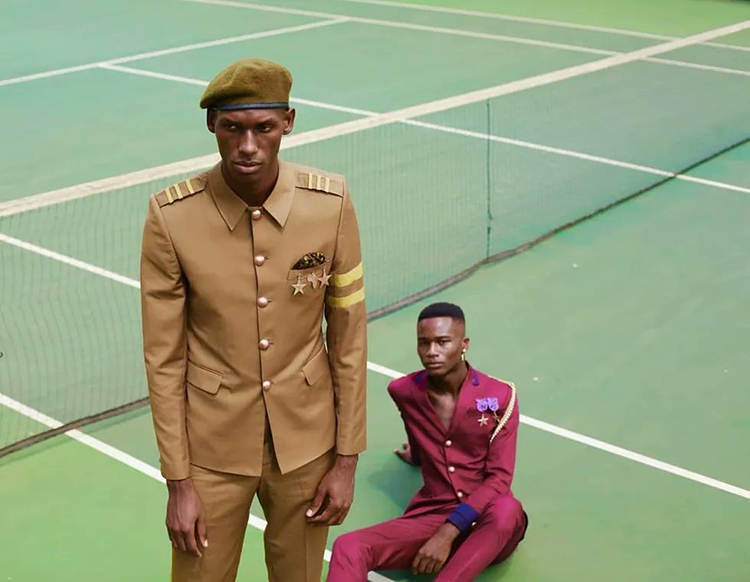
House of Tayo incorporates African heritage with a contemporary touch to create unique styles. Net.
Designer Moses Turahirwa described having his Moshions brand on the platform as a huge boost for his business as he looks set to use the opportunity to push it to reach a bigger population from different parts of the globe.
“Beyoncé has always shown interest in supporting African-owned businesses, especially the creative industry and I am of course happy to be among the businesses going to benefit from her initiative. I believe her platform will give a bigger exposure for our brands to a bigger audience worldwide,” Turahirwa said in a telephone interview.
“It’s a big boost for our businesses. It a proof to the world that Rwanda’s fashion designers can do great fashion designs. Hopefully the number of our customers will grow as a result,” he added.
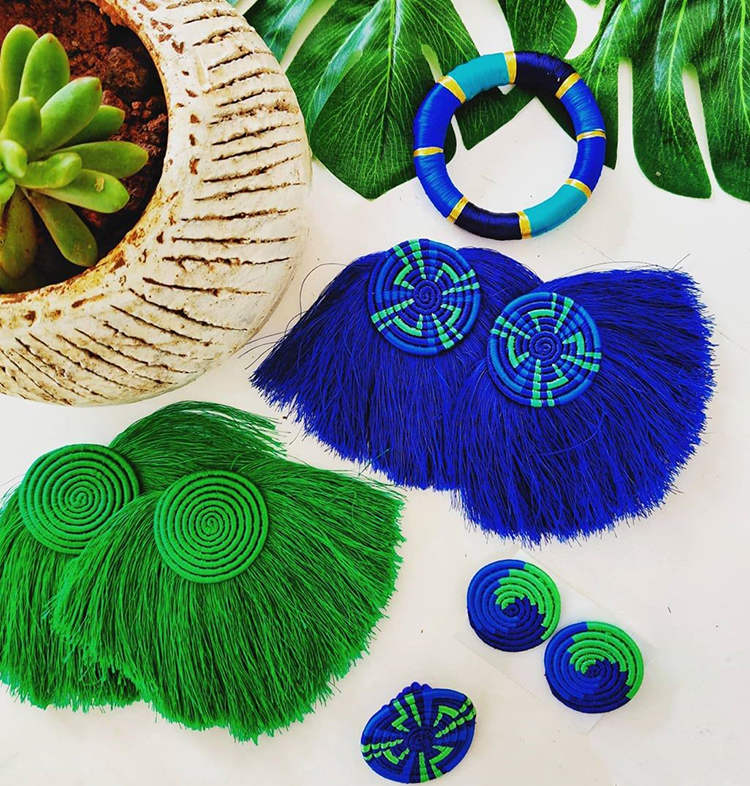
Inzuki designs jewelleries and other accessories. Courtesy.
For Matthew Rugamba, the CEO of House of Tayo, having a stamp of approval of one of the biggest artists on the globe is truly humbling and believes the platform will help his Brand grow significantly.
“For so many years our work in the creative industry has been undervalued and underappreciated but we have continued to create and push boundaries. For our work to be part of a celebration of blackness and black creativity makes the moment even more powerful for me,” he said.
The move to support black-owned small businesses comes just a few days after Beyonce premiered and released globally her new musical film and visual album Black Is King on July 31, just one year after the release of Disney’s ‘The Lion King.’
This email address is being protected from spambots. You need JavaScript enabled to view it.
The fashion shows are expected to focus on cultural activities to promote tourism and Made-in-Rwanda designs. / Courtesy photos.
The next edition of the Rwanda Cultural Fashion Show (RCFS) will feature a series of shows promoting cultural tourism through fashion, as organisers look to reposition the annual event in the wake of the outbreak of the coronavirus pandemic.
Like other fashion brands and shows around the world, the coronavirus outbreak has had a major impact on the Rwanda’s fashion industry amid the pandemic since March 14, when Covid-19 was first reported in the country. As a result, the pandemic has forced Rwandan fashion designers and organisers of annual events like Kigali Fashion Week, Rwanda Fashion Week (RWF), formerly (CollectiveRW Fashion Week), Mercedes Benz Fashion Week and Rwanda Cultural Fashion Show to cancel the shows.
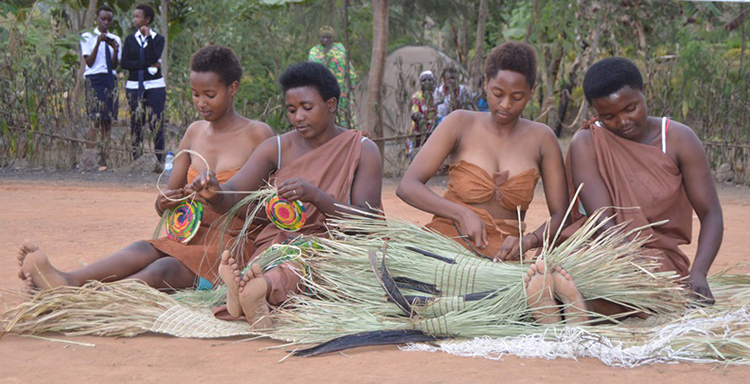
RCFS is among popular annual fashion events, organised since 2012, to provide a platform for emerging and established designers and models to showcase their work, as well as a platform linking local and international designers for potential opportunities.
Speaking about the event, Ntawirema said that they already have activities in place from at Red Rocks, a cultural centre in Musanze District stretching from September 25-28. The show will not showcase a cultural collection, but a variety of unique things including Rwandan traditional food, beverages, knitting and grain milling, among other things.
“In order to boost domestic tourism, we have organised this event to show tourists the cultural garments and accessories Rwandans used to wear years ago,” he said.
“For example, what people wore during traditional ceremonies and different activities they used to engage in. All these are different things we can showcase,” he added. In December, the organisers expect to host a show at the King’s Palace, known as ‘Mu rukari’, in Nyanza District, to give young people an insight into what used characterise cultural events at the King’s palace.
“The majority of Rwanda’s young generation do not have enough background on the history of fashion during the days of the Kingdom in Rwanda and we thought of this initiative not only to give them a chance to have an experience on the royal fashion code but also as a way to boost domestic tourism,”
“We have a plan to showcase traditional clothes and we have already got experienced models who will display the traditional way,” he said. Over the past seven years, the Rwanda Cultural Fashion Show has been on a successful journey and has served as a bridge for different models to build their own careers and write their names on the Rwandan fashion scene.
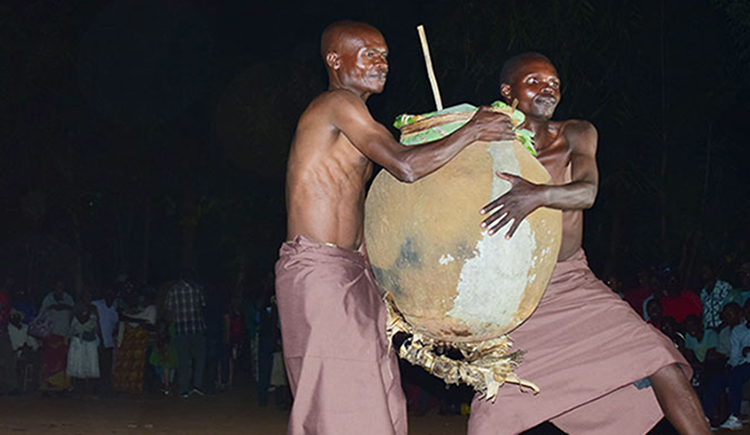
Moshions founder, Moses Turahirwa, is among the models who used the platform to build their names to reach greater heights in Rwanda’s fashion industry. The RCFS has also started a weekly fashion TV talk show dubbed, Ikirezi Fashion Style (IFS), which airs every Saturday on Isibo TV, as a platform to give fashion lovers a glimpse into ‘behind the scenes’ on the goings-on in the local fashion industry.
This email address is being protected from spambots. You need JavaScript enabled to view it.
The new coronavirus pandemic was confirmed in Rwanda in March and the government moved fast to impose a lockdown as part of the measures to curb the spread of the virus. Everything came to a standstill. The pandemic had a huge impact on almost every industry, especially businesses which were considered nonessential such as the fashion industry, which at the time of the outbreak was picking good momentum.
Both the fashion industry and creative arts globally and in Rwanda in particular, have been affected, with players in the industry emerging among the most hit businesses that might need an economic stimulus to pick up if Covid-19 happens to go away.
Celestin Ntawirema, founder of Rwanda Cultural Fashion Show, says when Covid-19 started and with the lockdown measures that were put in place by the government taking effect, they couldn’t organise any events which had been planned, setting them back.
“The outbreak means that as Rwanda Cultural Fashion Show, we will not be able to achieve our goal this year which is to promote modelling and fashion designers, but now that events cannot happen, it has become difficult to achieve anything,” Ntawirema explains.
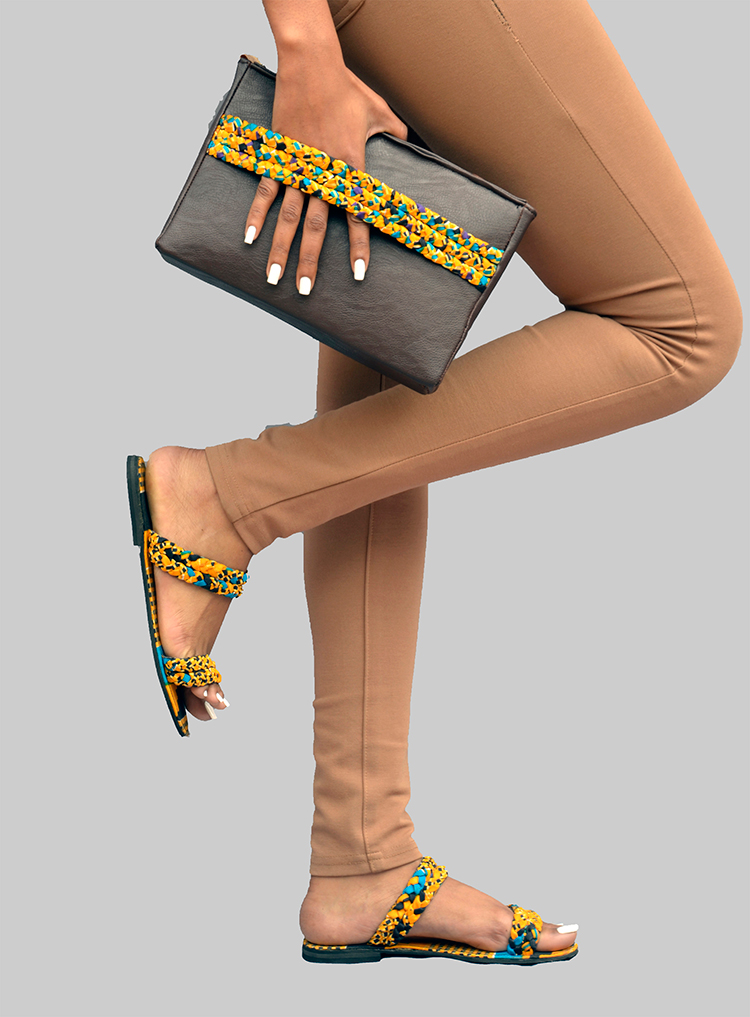
Rwandan made accessories. Courtesy.
He noted that without a reliable platform to showcase their designs, the industry is likely to collapse anytime soon if the situation does not improve. But on the other hand, Ntawirema says there are steps that have been made like supporting some designers and models to continue with their work.
Ntawirema urges government to come on board and work with fashion promoters and designers to revive the hard-hit industry. He says that more efforts can be directed towards bolstering the Made in Rwanda campaign as part of efforts to encourage local production and consumption.
The fashion industry’s deterioration would see a serious impact on the country’s economy, not to mention many people who are likely to lose their jobs. Similarly, creative artistes in the Rwandan fashion are struggling to make sales to sustain their businesses despite some services of the economy reopening.
“They're a lot of challenges in the industry at the moment and most of them have no clear solution,” says Joselyne Umutoniwase, the founder of Rwanda Clothing. However, she says players in the fashion industry have to adjust and learn to work under the new normal, including working in shifts and also use half of their capacity in production to keep active as well as aligning the output with the demand.
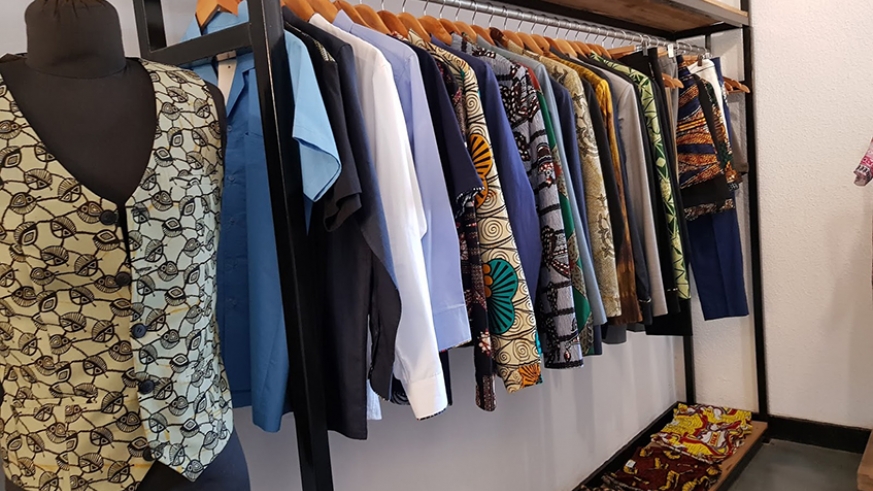
Some of the designs by Rwanda Clothing. / Courtesy.
Umutoniwase says the designers have to retain their customers and give reason to them a reason to continue supporting them since they also know that Covid-19 had an impact on their businesses. She said that the Covid-19 outbreak has had a huge impact on the luxury market-creating redundancy in the business due to the fact that there are no events or functions that make people want to spend extra on clothes.
Despite the fall in demand, all has not been gloom. New opportunities are presenting themselves as fashion brands have shifted to making fashionable coronavirus face masks since they are the most bought item.
Reasons for the decline in sales
Due to major event cancellations such as weddings, special occasions, and vacations that have been disrupted by this pandemic as many people are staying home, most people don’t care much about dressing but rather having food and being able to cover their daily living costs. With this, some see no interest in buying new clothing which has affected sales for so many fashion designers.
It has been noticed that the countries industrial production decreased by 13.90 per cent in March, further pushing the market into big losses. Some designers shut down their stores and encouraged their customers to shop online instead. Many designers and retailers have adapted to producing and showcasing their fashion products online via different social media platforms such as Instagram where we are seeing different fashion designers updating and engaging customers online through informing them about new offers like the new masks available, hence encouraging their customers to make orders.
Rwanda has been implementing a policy to end the use of second-hand clothes, which was quickly turning in to an opportunity for the local industry but Covid-19 has disrupted that. In the face of the unexpected standstill in manufacturing, many industries were allowed to produce protective masks in a bid to promote made in Rwanda products.
It has been an opportunity for industrial players and their workers in the form of employment. In response to the pandemic, major fashion brands and retailers are cancelling orders due to a lack of fabrics and availability. Face masks have become an essential product for many if not all, with many looking to purchase locally made masks as part of efforts to support Made in Rwanda.
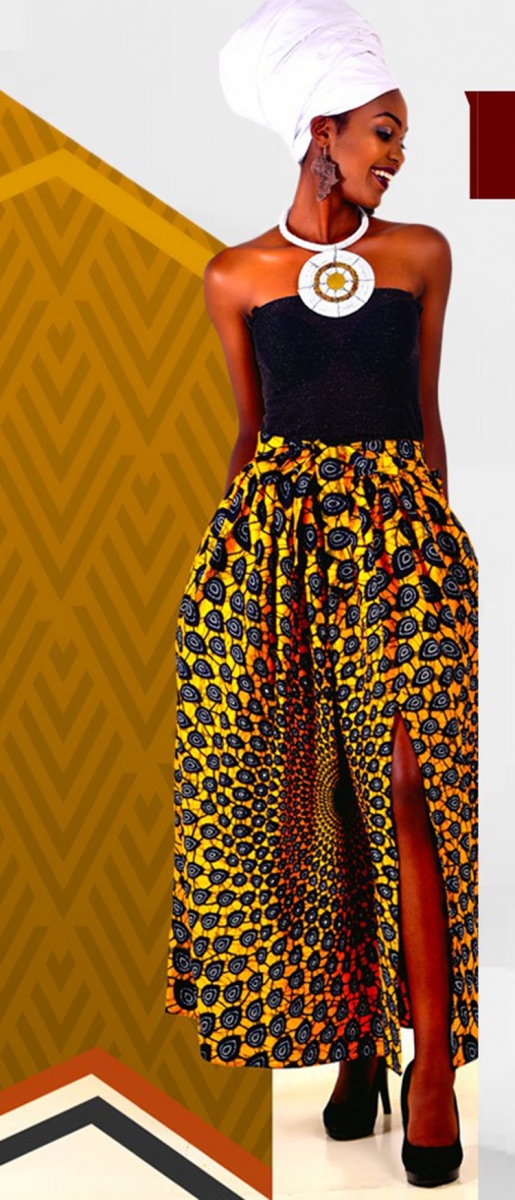
Face masks have also been trending as fashion statements during this pandemic something that started as purely protective transformed into fashion where fashion designers are now making branded face masks.
This email address is being protected from spambots. You need JavaScript enabled to view it.
Rwandans are slowly getting accustomed to the word “Tanga” mostly because it makes up Tanga design, one of the fashion houses that has claimed their spot on Rwanda’s fashion industry.
This year, Tanga design went big by sponsoring Miss Rwanda beauty pageant.
That event’s collection was dubbed, “Ikamba collection” comprised of haute couture dresses stitched by a talented fashion designer and stylist Olivier Niyitanga, aka Gucci Tanga.
At the first glance of Tanga design shop, it’s almost impossible to grasp the idea that such a limited space can produce such tremendous and numerous pieces of art.
The inception of Ikamba collection
“Ikamba” is a Kinyarwanda word that translates to mean the crown. Donning a white du-rag at the time of the interview, Tanga told The New Times that he drew the idea from the previous collection, which reflected Rwandan culture.
“The idea came from this collection which had “ibyanganga” a traditional headpiece worn by ladies of the court in Rwanda during royal occasions, also inspired by umushanana, the wedding attire in Rwanda,” he recounted.
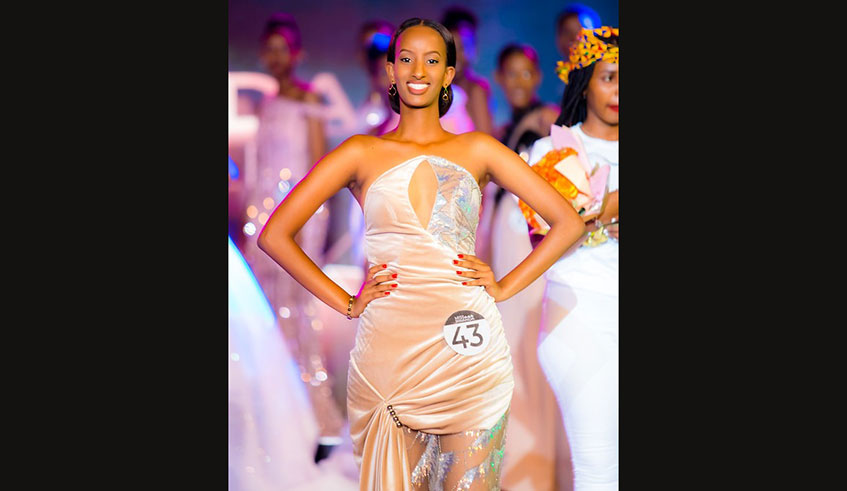
The collection, Tanga added, received a massive buzz from people on our social media which led to Ikamba collection idea which we wanted to have a Rwandan culture touch.
According to the agreements of the sponsorship, Tanga design only had to dress the top 10 finalists.
It was not an easy task
Dressing the beauty pageants wasn’t like falling off a log according to the talented designer.
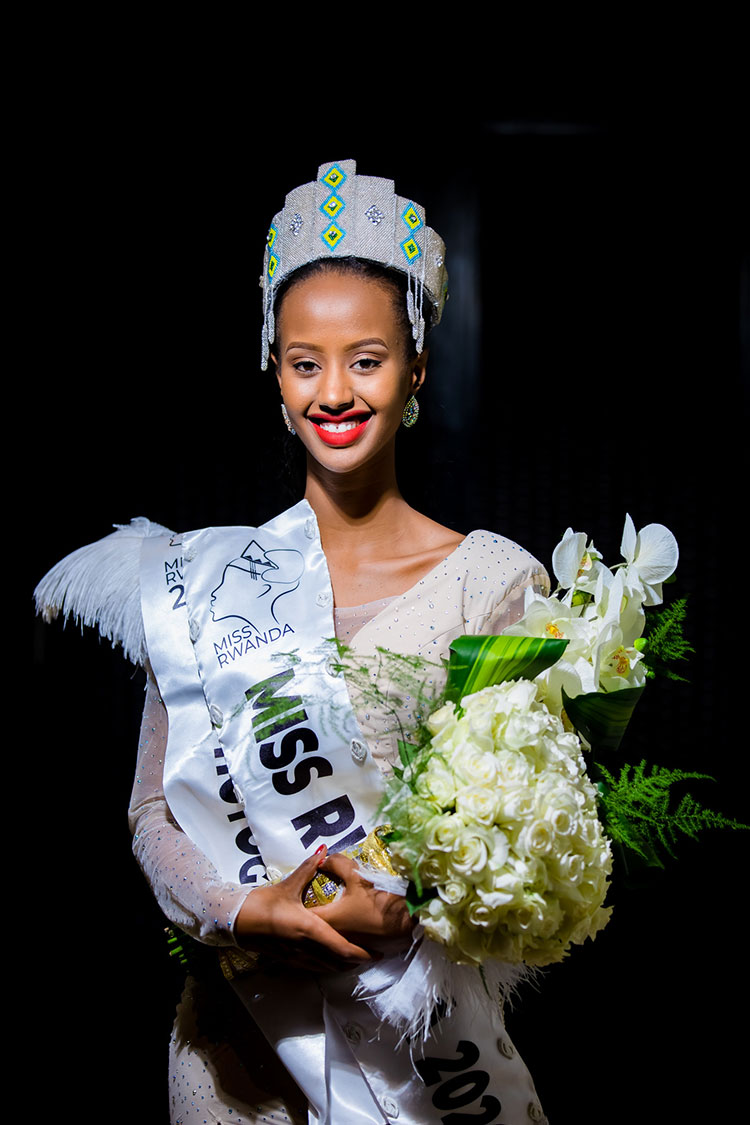
Miss Rwanda 2020 winner Naomie Nishimwe was dressed up by Tanga design.
“It wasn’t that easy to prepare dresses for ten different girls you don’t know because the dresses had to be ready before the grand finale where they voted the 10 finalists and the winner in the end,” the 23-year-old said.
However, he added, with experience, I managed to get them ready before the deadline.
That was an experience which involved “a lot of sleepless nights” according to the designer.
Tanga design’s journey
Besides this year’s milestone, the 23-year-old designer has showcased his collection at Mercedes Benz Fashion Week, which was held in South Africa and Ghana as well as Kigali Fashion Week.
“This journey began back in 2014 when I finished high-school and it wasn’t easy because I began solo with no other help and carrying out all duties in a company such as being a creative director, CEO to name a few,” said he said.
Currently, Tanga Design makes clothes for the wedding ceremony whose cost depends on the material used.
Tanga shared a piece of advice to young people: “Pursue the thing that will earn you a dime.”
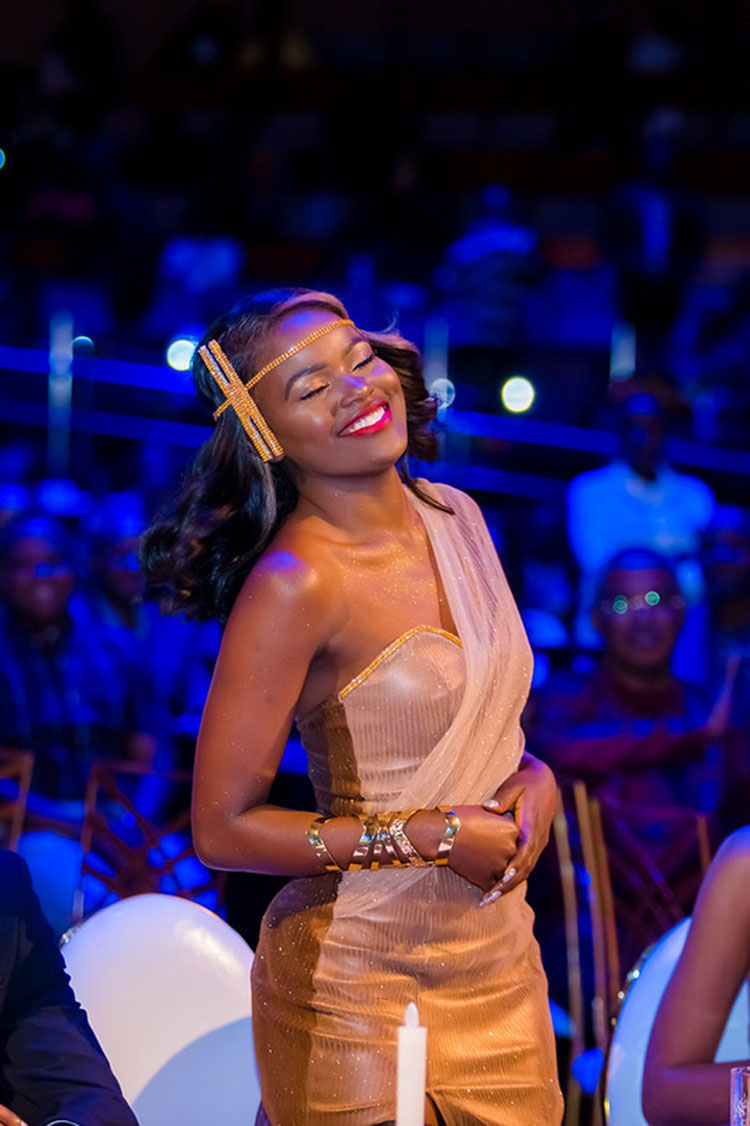
Sherrie Silver donning Tanga design at Miss Rwanda
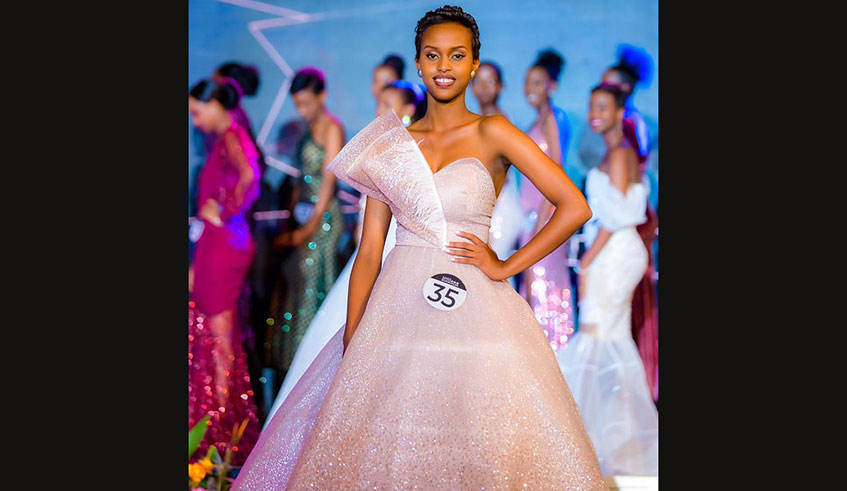
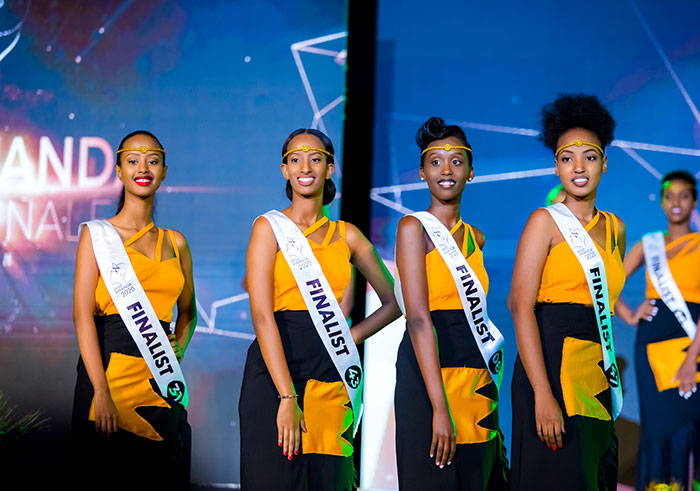
This email address is being protected from spambots. You need JavaScript enabled to view it.
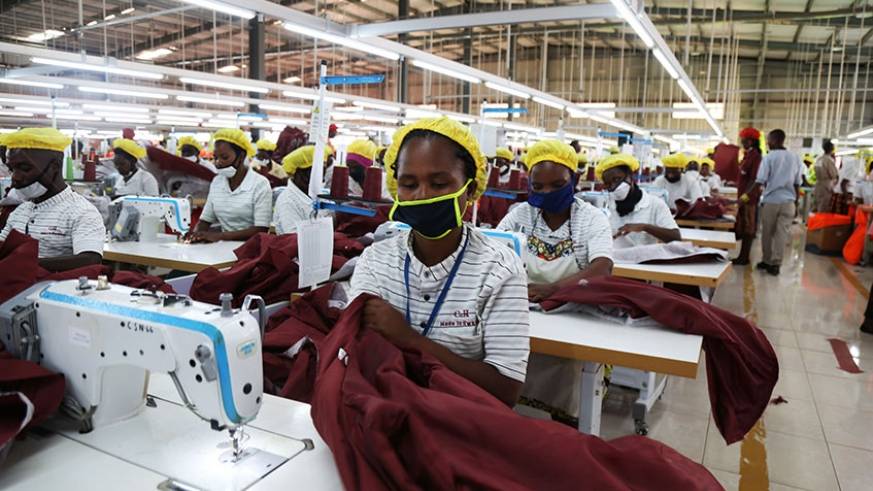

Employees of C&H Garments, a Chinese garment manufacturing firm that operates at the Kigali Special Economic Zone, sewing clothes recently. The Government is set to amend policies to foster collective investment schemes, especially in high value-added industries and service sectors. / Photo: File
The Government plans to adjust policies to foster collective investment schemes, especially in high value-added industries and service sectors.
The plan is part of the resolutions of last month’s National Leadership Retreat.
The recent annual leaders’ retreat, the 17th of its kind, had 16 resolutions. Four of them, including the last, were private sector-specific.
Three others are to: develop a concrete plan to facilitate the strengthening of private sector skills, review mining sector strategies to improve diversification and value addition and support access to private equity funds as an alternative to loans.
Regarding resolution 16, the Director-General of Trade and Investment in the Ministry of Trade and Industry, Tony Kajangwe, said the government plans to continue working with various stakeholders to adjust relevant policies and put in place mechanisms to support the private sector to achieve this.
Among the proposals is to review policies related to the regulation of private equity funds and other joint management funds, with the support of institutions which will directly support in mobilizing and facilitating access to credit between foreign and domestic collective investment vehicles.
“The private sector has a significant role to play in setting up these schemes, and has already begun with tangible examples of collective investments in real estate, manufacturing and the construction sub-sectors,” he said.
Theoneste Ntagengerwa, the Private Sector Federation (PSF) Spokesperson, explained that the latter used to have collective investment schemes mainly focused on building houses for the market and there were few or limited such schemes focused on productive industries or processing or value addition to products.
Ntagengerwa said: “Our understanding now is that we have to focus on adding value. The challenge we used to have is that people engaged in Made in Rwanda used to do things as sole investors. Their capital was very limited and, in order to produce large and quality products, another related resolution was made [in the national leader’s retreat] on equity financing.”
Ntagengerwa explained that the PSF started in the garments industry and “brought all of them together” and formed a company - Apparel Manufacturing Group (AMG) so that they can leverage on the knowledge and capital they have so that they can boost production.
Members of AGM are mostly small and medium enterprises who were brought together under the same Company.
Mid last year, they signed a deal with one of China’s biggest textile companies, to start producing fabrics and finished clothes in Rwanda.
“With the recent resolution [16], and others [related to PSF], I hope we are going to see acceleration of what we are already doing.”
According to Ntagengerwa, to make things work especially in bringing the business community together, the PSF is collaborating with other entities supporting industry development in Rwanda, such as the Ministry of Trade and Industry as well as the National Industrial Research and Development Agency (NIRDA) “mainly because majority of those in collective investment schemes are members of PSF.”
By and large, the collective investment scheme business started with the RNIT Iterambere Fund; an open-ended balanced unit trust managed by a Rwanda National Investment Trust (RNIT), a licensed fund management company. The fund was launched in 2016.
The government has, since then, urged entrepreneurs to embrace collective investment schemes.
Missing link
Previously, Ntagengerwa explained, the missing link was the orientation.
He said: “We mainly focused on bringing people together. Now we are focusing on value addition. People used to think they could go it alone in investment but most often they had money but lacked information on how they could partner with others who have money and make their investments more profitable.”
“What we are going to do is get information, gather people, try to connect or network in their respective sectors and also provide them with requisite information. We realized that people may be in the same area or sector and compete with each other but fail to improve their businesses because everyone is doing the same thing yet they could leverage their capacity and build a better value chain.”
The PSF, he stressed, aims to help business leaders network properly so that they can identify gaps and ably sort them out.
“We are now also, as PSF, trying to figure out how we can implement each of the resolutions that concern us. We need to have a specific roadmap for each PSF-specific resolution.”
This was discussed recently at management-level and they hope to have a clear roadmap “very soon” whereby everyone will know what they are supposed to do.
“The good thing is that there are some activities which we had already started before these resolutions.” Asked which activities exactly, he listed capacity building, which he said is ongoing “and will be enhanced, continuously.”
This email address is being protected from spambots. You need JavaScript enabled to view it.

As years go by, organisers of the Miss Rwanda pageant are working hard to grow its brand and become one of the country’s most entertaining shows.
The grand finale that took place last Saturday, saw a huge turn up of revelers at the Intare Conference Arena, some clad in T-shirts and banners showing photos of their favourite contestants, while others were glued to their TV sets to watch the show that was streaming live.
A number of beauty queens also graced the event, and they included Miss Ghana 2019, Rebecca Kwabi, Miss Ghana 2nd runner up, Deborah Opoku, Miss South Sudan 2019 Mariah Maget Nyayiena, Miss Botswana 2019, Oweditse Phirinyane, Miss Uganda 2019 Olivia Nakakande and Miss Tanzania, Sylivia Sebastian.
In a glamorous setting of the arena, with perfect lighting and décor, the event kicked off at 8pm with the 19 contestants showcasing their choreographed cat walking skills, followed by the question and answer session.
Donned in beautiful evening gowns by Ian Boutique, the girls took turns in answering questions that mostly centered on the country’s development programs.
Different from the previous years, the contestants had the choice to answer in the language of their choice and they exuded confidence with their answers. As a result, the jury that comprised of Sherrie Silver, a choreographer and actress, television personality, Evelyne Umurerwa, journalist and editor, James Munyaneza, Jolly Mutesi, Miss Rwanda 2016 headed by comedian Diogene Ntarindwa had a hard time picking the ten top finalists.

Newly crowned Miss Rwanda 2020 Naomie Nishimwe.
Accompanied by national ballet, Inganzo Ngari, the girls entertained the audience with a traditional dance, before they left the stage for the troupe who entertained the audience for about half an hour.
Soon, the top ten finalists were announced, amid loud cheers from the audience. The finalists Hope Akaliza, Gaudence Ingabire, Chanice Mutenwantebe, Musana Teta, Nicole Ndenga Teta, Anitha Umuratwa, Denise Umutesi, Phiona Umwiza, Alliance Irasubiza, Naomie Nishimwe, who won the most public votes, shared their projects with the audience.
As the jury took time to pick the top three from the finalists, Inganzo Ngari gave an astounding performance of Gakondo before DJ Ira took to the decks to play the audience’s favorites. They did a good job in entertaining the crowd for about an hour before the judges returned with the results.
In the end, Naomie Nishimwe was announced Miss Photogenic, Diane Ingabire became Miss Congeniality, Nicole Ndenga Teta became Miss Heritage, while Alliance Irasubiza became Miss Popularity. Josiane Mwisineza, Miss Popularity 2019, caused loud cheers as she took to the stage to congratulate her successor.
Phiona Umwiza was later announced as the first runner up, followed by Denise Mutesi, as second runner up of the contest.
Naomie Nishimwe was eventually crowned Miss Rwanda 2020 by Miss Rwanda 2019, Meghan Nimwiza, whose evening gown was the talk of the show given its size and uncomfortability.
The announcement stirred excitement from revelers and social media followers, who had betted on her win since the preliminaries when she represented Kigali City.
The new beauty is part of the Mäckenzies quadruple famous on social media for their performing skills.
The high school graduate completed in Mathematics, Economics and Geography. Her project is about raising awareness on mental disorders, particularly depression among the youth.
As the overall winner, she walked back home with a brand-new Suzuki Swift, courtesy of Rwanda Motors, a monthly salary of Rwf800,000 from Africa Improved Foods (AIF), as well additional goodies from Miss Rwanda’s partners that include a fully paid vacation in Dubai, Arab Emirates.
Nishimwe will also represent Rwanda at the Miss World pageant.
Among the prizes, the first runner-up will walk away with Rwf1, 200,000 to be given by Multi Design Group, which will also provide a free air ticket to Miss Rwanda to spend her post-contest vacation in Dubai, United Arab Emirates (UAE).
Miss Popularity, on the other hand, bagged Rwf1,500,000, courtesy of MTN Rwanda, and will become the telecom’s brand ambassador for year’s Yolo campaign.
This email address is being protected from spambots. You need JavaScript enabled to view it.

Turahirwa is the founder of Moshions fashion brand and a model. Moshions is an elegant, culturally inspired brand.

His designs are inspired by Rwandan culture. Courtesy.
Linda Mukangoga, of Haute Baso, was one of last year’s finalists of Fashion Focus Africa.
According to organisers, the nationalities represented are a testament to Fashion Focus’ efforts to facilitate pan-African collaboration and generate impact beyond the Nigerian borders.
Applications were received from a range of applicants across the continent and five finalists were selected based on the strength of their creative and commercial proposals by the judging panel which included Allesandra Della Morte, Fashion Editor – Vogue Talents, Ijeoma Ogbechie – Founder Avivere, Maki Nakata – Freelance journalist, Branding Director & Advisor with a special focus on African perspectives, and Nisha Kanabar – Founder & CEO of Industrie Africa, at an interview session during Heineken Lagos Fashion Week 2019.
Other finalists that were announced include, Taju Ibrahim – TJWho (Nigeria), Kadiata Diallo- Niuku (Mauritania), David Dodoo – Chiip O’Neal (Ghana), Elfreda Fakoya – Elfreda (Nigeria).
Over the years, Fashion Focus Africa has established itself as a platform dedicated to the development of designers within the fashion ecosystem across the African continent. Consequently, it has maintained a year-long-incubator program to support designers by assisting them with establishing the right structure and practices to facilitate scalability and business growth.

Some of the garments displayed inside Moshions in Kigali. Courtesy.
This email address is being protected from spambots. You need JavaScript enabled to view it.

A model hits the runway during at Rwanda Cultural Fashion show back in September. Photos: File.
Made-in-Rwanda remains the common motto for local fashion designers and creativity has been at the heart of their collections, which continue to challenge the international market in the world of fashion.
The fashion fraternity still mourns top model Alexia Mupende who passed on in January last year but the industry has been quite impressive over the past twelve months as proved through the following events:
Kigali Fashion Week marks 10-year anniversary
Alhough the journey has been an uphill struggle for Rwanda’s fashion industry over the past ten years, local models and fashion designers had reason to celebrate their incredible rise, thanks to Kigali Fashion Week.
It is through the annual fashion show that a number of renowned models like Mister Africa 2017, Jean de Dieu Ntabangayimana, aka Jay Rwanda, and Moses Turahirwa, who now owns Moshions, found their potential in fashion and modeling. To date, the annual event continues to introduce new talents to the fast-rising world of fashion in Rwanda.
During its 10th anniversary, a number of new faces in modeling field were given a chance to headline the runways dressed in well-decorated designs from local and international designers in an impressive style.
Debut Mercedes Benz Fashion Week in Kigali
The Mercedes Benz Fashion Week, in June last year, kicked off their debut show in Kigali on a high note.
The Mercedes-sponsored two-day fashion event was like no other, having attracted some of the arguably best fashion designers on the continent, and beyond, including prominent South African fashion guru George Malelu, whose style legacy in South Africa and beyond earned him huge deals with renowned celebrities, like American Pop singer Beyoncé Knowles.
Other established designers from Burundi, Belgium, USA, Ghana, Nigeria, South Africa, Cameroon, Canada, Uganda, Kenya, England and the host nation Rwanda were invited to showcase their finest fashion collections at the fashion show.
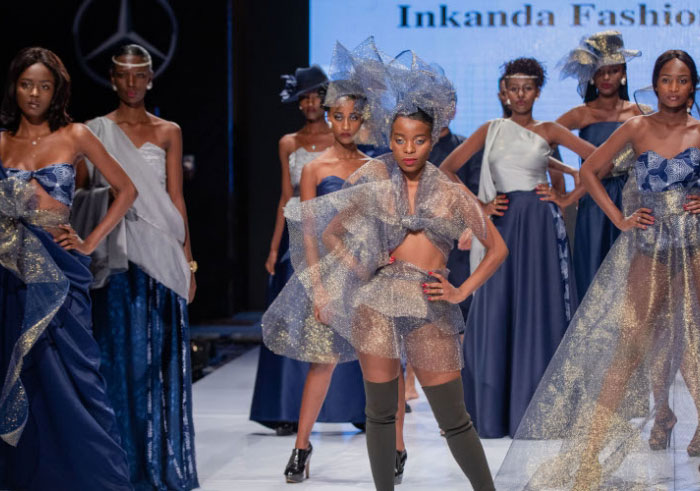
The first edition of Mercedes Benz Fashion show was a successful one in Kigali as designers from across the globe exhibited their work.
Credits go to Danny Ndayishimiye, a fashion events coordinator, who brought the fashion event to Kigali, to make it become the second city to host Mercedes Benz Fashion Week after Accra, Ghana. The two are the only African cities hosting the coveted fashion event.
Other cities that host the Mercedes-sponsored event include Istanbul (Turkey), Brisbane (Australia), Mexico, Malaysia and Tbilisi (Georgia) among others.
Rwanda Cultural Fashion Show

The seventh edition of Rwanda Cultural Fashion Show (RCFS) simply proved to be where traditional and modern fashion meet. The annual fashion event organizer, Celestin Ntawirema, masterminded a traditional-modern fashion mix with a purpose to create original African wear.
The event has always been there to provide an inclusive and supportive platform dedicated to emerging and established designers and models, with a touch of the Rwandan and African culture, linking up local and international fashion designers in a bid to open up new opportunities.
The designs showcased at the show were varied from animal print cultural sense of style, “Inshabure”-Rwandan antique clothing style, to “kitenge” African print to ensure cultural diversity was embraced throughout the show.
It may have coincided with American singer Ne-Yo’s performance at Kwita Izina live concert in Kigali but the show did not fail to impress.
Rwanda Modesty Fashion show
There is one thing that makes Rwanda Modesty Fashion look unique: dressing up in line with respecting culture, hence all the collections, showcased at the fourth edition of the show in December, were locally made, and proved that the true beauty of a Rwandan lies in dressing up properly and decently.
The future of the annual fashion show, which is mainly organized to promote Rwanda’s cultural values through fashion, looks promising given that organisers of the event are focusing on giving respect Rwandan culture deserves.
Rwanda Fashion Week
If more fashion events perform the way Rwanda Fashion currently does, Rwanda could, sooner than later, find itself in a good position to become a potential fashion destination in Africa.
Formerly, CollectiveRw Fashion Week, the annual fashion event is organised by CollectiveRW, and aims at strengthening, promoting and developing Rwanda’s fashion industry by fostering talent, originality and representation locally, as well as on the African content and abroad.
CollectiveRw’s members Sonia Mugabo, Moses Turahirwa of Moshions, House of Tayo, Haute Baso, Uzi Collections were among the top designers who showcased collections of creative couture alongside established international designers which impressed the audience that included some members of the First Family.
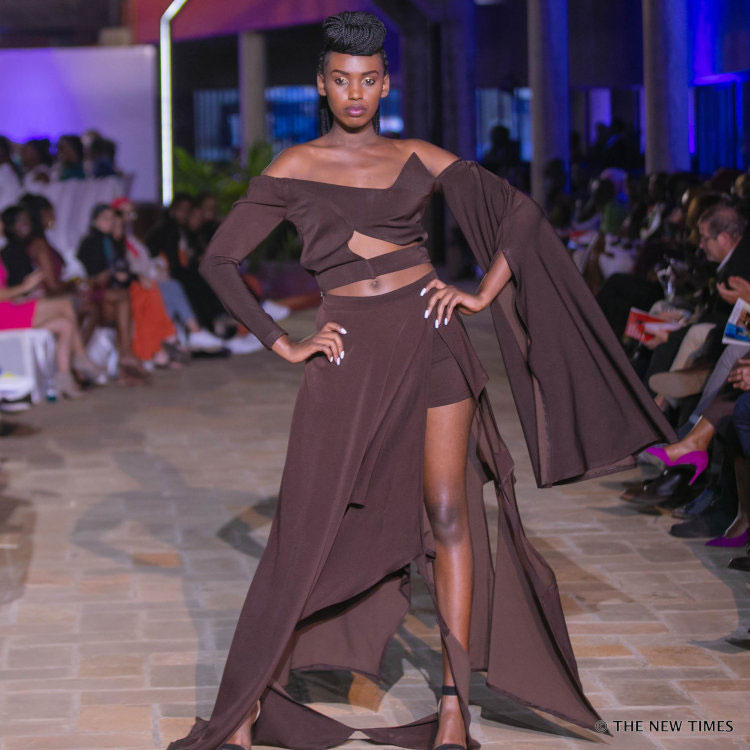
A model on a runway during a past Rwanda Fashion Week-File

Designer Sonia Mugabo showcases her designs at a past Rwanda Fashion Week event in May. File

James and Daniella won the Best upcoming gospel stars award
This email address is being protected from spambots. You need JavaScript enabled to view it.
LATEST NEWS
9 Years Milestone: Moses Turahirwa and His Moshions Brand Rwanda-Based
25 October 2024 329 hits9 Years Milestone: Moses Turahirwa and His Moshions Brand Rwanda-Based Over the past decade, Rwanda's fashion industry has emerged as…
What to Expect in Lagos Heineken Fashion Week 2024: Runways Kick off Today
23 October 2024 432 hitsWhat to Expect in Lagos Heineken Fashion Week 2024: Runways Kick Off Today The prestigious Heineken Lagos Fashion Week (LagosFW),…
Storytelling Meets High Fashion at The Kenya Fashion Story 2024
23 October 2024 484 hitsStorytelling Meets High Fashion at The Kenya Fashion Story 2024 The convergence of narrative and haute couture takes center stage…
Why Former Model Franco Kabano Is Backing the Stage Fashion Showcase's Founder
23 October 2024 443 hitsWhy Former Model Franco Kabano Is Backing the Stage Fashion Showcase's Founder In Rwanda's fashion industry, Franco Kabano and Sandrine…
The Stage Fashion Showcase 2024 Pre-Event Highlights Emerging and Established Talents: Main Event Set for November 1
20 October 2024 408 hitsThe Stage Fashion Showcase 2024 Pre-Event Highlights Emerging and Established Talents: Main Event Set for November 1 The fashion scene…
Adopting Sustainable Fashion Practices and Understanding the Market's Needs
17 October 2024 1009 hitsAdopting Sustainable Fashion Practices and Understanding the Market's Needs Fashion Trends Africa by RCFS recently organized a virtual conference bringing…
FASHION SHOPS
